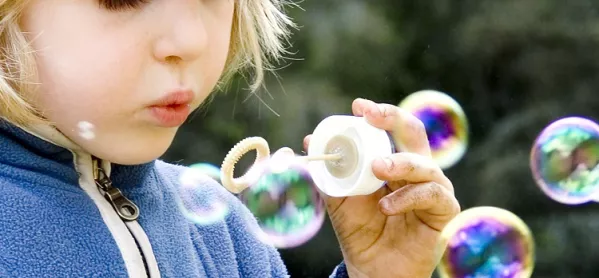- Home
- EYFS: Do you really understand sensory play?
EYFS: Do you really understand sensory play?

We experience the world, and everyone and everything in it, through our senses.
For example, I can imagine someone reading this blog on a bus home, feeling the phone in their hand, hearing sounds from fellow passengers and the traffic on the road. They might have a slight aftertaste from some gum in their mouth. Maybe they can smell the sandwich being eaten by the man two seats down.
As adults, we naturally take all of this for granted, but for children it’s all a lot more complex.
What is sensory play for?
If our brains were a large company, our sensory system would be the often overlooked but completely essential post room. Every package and parcel that comes in is like a piece of stimulus that we receive through our senses.
This stream of “post” is constant and unrelenting. Thankfully, as adults, most of our “post rooms” are staffed by a team of mostly competent and experienced people who’ve had years to learn to work together efficiently. They do a manageable job of identifying, sorting and sending everything where it needs to go and the company gets along just fine most days.
On the other hand, the “post room” of a baby or young child has only one employee, and to make matters worse, that employee is untrained and entirely new to the job. Despite being eager to learn, they struggle to sort and to make sense of everything coming through their senses.
To stretch this metaphor to dangerous limits, we are lucky, however, that evolution has gifted young children’s post room staff with an excellent apprenticeship programme. It’s called active and self-directed play.
When young children play with a stick, run down a hill, use “too much” glue, paint an entire piece of paper in one colour, spin in a circle, climb on furniture, throw a ball, or anything else that appears to be fun and pointless, they are actually gaining valuable experience in receiving, sorting and making use of the constant stream of stimulus they are receiving through their senses.
Not only are they developing the five “basic” senses of touch, taste, smell, sight and hearing, they are developing their proprioceptive, interoceptive and vestibular senses as well.
Play isn’t ‘pointless’
Sadly, social, political and economic changes in the past few decades have seriously interfered in this genetically hardwired process for many children. The stresses of a decade of austerity on families and communities, increased screen time and dramatically fewer chances for self-directed/active/outdoor play have inevitable impacts on the children who walk through our doors.
And within education itself, in our increasing rush to get younger children “school ready”, we are inadvertently depriving increasing numbers of them the time and support they need to get their “post rooms” in proper working order.
I always wonder how many people actually fully know why we offer playdough, sandpits, paint, wooden blocks and so on.
Do you know?
Why play is crucial
It is through these varied, engaging and sensory activities that children develop and integrate their sensory and nervous systems, among many other things. It looks cute, fun and frivolous to most outsiders but this is how children’s “post rooms” learn how to operate smoothly and efficiently.
Just because it is fun, or because most adults don’t understand what is going on beneath the surface, doesn’t mean it is pointless.
Ultimately, our ability to focus, regulate our emotions, make and achieve goals, think abstractly, build relationships and do pretty much everything else that is required to live healthy and successful lives, depends on a sufficiently developed and integrated sensory and nervous system.
I would argue that a great deal of the apparent increase in “behaviour issues” in and beyond the EYFS is at least partially due to our failure as a society to understand and value this basic fact of human physiology.
And while no early years setting alone can compensate for the recent drastic changes in society or our education system, we can be clear-eyed and confident about our role, and continue to properly educate ourselves and others about everything that teaching and caring for young children really entails.
David Cahn is a SEND teaching assistant in Year 1 at a primary school in Leeds. He tweets @DavidN_Cahn
Keep reading for just £1 per month
You've reached your limit of free articles this month. Subscribe for £1 per month for three months and get:
- Unlimited access to all Tes magazine content
- Exclusive subscriber-only stories
- Award-winning email newsletters



